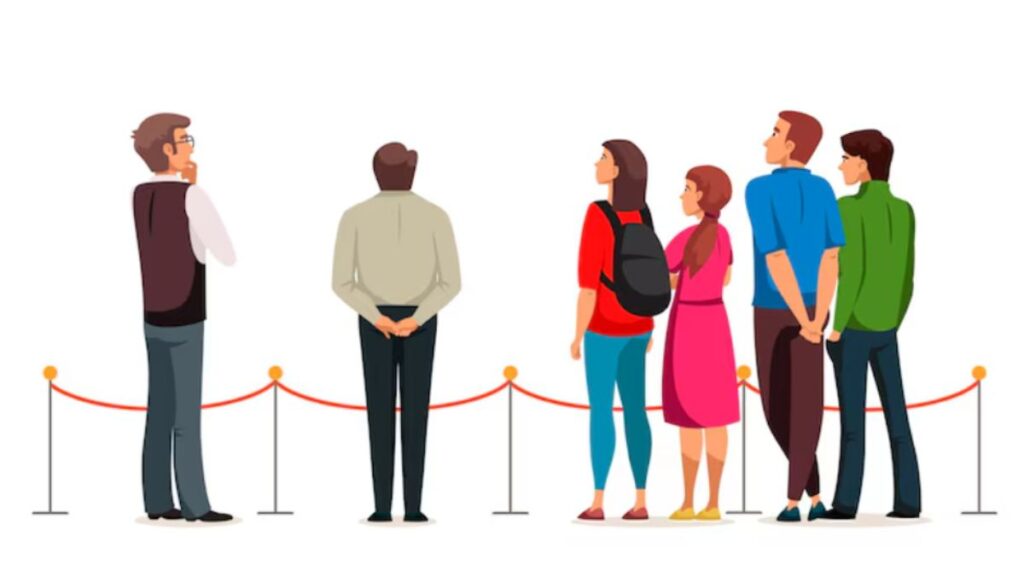Navigating the complex waters of government services can often feel overwhelming. Citizens may find themselves lost in bureaucracy, struggling to have their voices heard. Enter the ombudsmän—those unsung heroes who serve as vital bridges between people and government institutions. With a mission rooted in fairness and accountability, these advocates ensure that citizens’ concerns are addressed effectively. But what exactly does an ombudsmann do? How has this role evolved over time? Join us as we dive into the world of ombudsmänner, exploring their responsibilities, challenges, and the positive impact they have on society.
Role and Responsibilities of an Ombudsmänner
Ombudsmänner play a critical role in promoting accountability within government institutions. Their primary responsibility is to investigate complaints from citizens regarding public services.
They act as intermediaries, providing a voice for individuals who feel unheard or mistreated by bureaucracy. By listening sincerely, they ensure that grievances are acknowledged and addressed.
Additionally, Ombudsmänner offer guidance on navigating complex systems. They help citizens understand their rights and the processes involved in resolving issues with government entities.
Moreover, these advocates gather data and insights from citizen complaints. This information can be instrumental in recommending policy changes to improve service delivery.
Their work fosters transparency and trust between the public and governmental bodies. By championing fairness and justice, Ombudsmänner create an environment conducive to civic engagement while ensuring that officials remain responsive to community needs.
History and Evolution of Ombudsmänner Offices
The concept of ombudsmänner can be traced back to Sweden in 1809. The first office was created as a means to safeguard citizens’ rights against government actions.
As democracy spread across Europe and beyond, the role expanded significantly. Countries recognized the need for independent oversight. By the mid-20th century, many nations established their own ombudspersons.
These offices evolved from focusing solely on administrative complaints to addressing broader issues like human rights and social justice. They started engaging with various sectors, including healthcare and education.
Today’s ombudsmänner operate within legislative frameworks that vary widely by country. Some have extensive powers while others are more advisory in nature.
This evolution reflects changing societal needs. Citizens increasingly seek transparency and accountability from their governments, making the role of ombudsmänner more critical than ever before.
Types of Issues Handled by Ombudsmänner
Ombudsmänner address a diverse range of issues, reflecting the multifaceted relationship between citizens and government. They often tackle complaints related to public services, such as healthcare and education. These matters can include delays in service delivery or inadequate responses from agencies.
Another critical area involves administrative fairness. Ombudsmänner scrutinize decisions made by governmental bodies to ensure they adhere to principles of justice and transparency.
Additionally, they handle grievances involving discrimination or abuse within the system. This role is essential for protecting vulnerable populations who may lack a voice.
Moreover, ombudsmänner frequently engage with issues surrounding privacy rights and data protection. As technology evolves, so do concerns about how personal information is managed by public institutions.
Environmental complaints have gained traction in recent years. Citizens increasingly seek assistance regarding local pollution or allocation of natural resources through their ombudsmann offices.
Benefits of Having an Ombudsmänner Office
Having an Ombudsmänner office offers numerous advantages for both citizens and government entities. These offices serve as a vital link, fostering open communication between the two.
One of the key benefits is increased accountability. When citizens have a platform to voice their grievances, it encourages government bodies to act with transparency. This can lead to better decision-making and policy implementations that reflect public needs.
Additionally, Ombudsmänner provide impartial support in resolving conflicts. They investigate complaints effectively, ensuring that every perspective is heard before reaching conclusions. This not only builds trust but also enhances community engagement.
Moreover, having an Ombudsmänner office promotes efficiency within governmental operations. By addressing issues at early stages, they help prevent larger problems from arising later on.
These offices contribute to a culture of fairness. They advocate for citizen rights while ensuring that governments remain responsive and responsible in their actions.
Challenges Faced by Ombudsmänner
Ombudsmänner often navigate a complex landscape filled with challenges. One significant hurdle is the lack of awareness among citizens about their rights and how to approach these offices for help. This can lead to underutilization of the resources available.
Additionally, ombudsmänner frequently encounter bureaucratic resistance from government agencies. Some departments may be reluctant to cooperate, fearing scrutiny or potential repercussions.
Limited funding also poses a threat to their effectiveness. When budgets are tight, resources dwindle, making it difficult for these offices to meet public needs adequately.
Moreover, maintaining impartiality is crucial yet challenging. Ombudsmänner must balance advocacy for citizens while remaining neutral towards government entities they engage with regularly.
Evolving social issues demand constant adaptation and education on emerging topics affecting communities. Staying relevant requires ongoing training and flexibility in addressing new concerns as they arise.
Success Stories of Ombudsmänner Impacting Citizens and Government Relations
Across various regions, ombudsmänner have made significant strides in bridging the gap between citizens and government institutions. One notable success story comes from Sweden, where an ombudsman intervened on behalf of a family facing eviction. Their swift action not only prevented homelessness but also prompted policy reviews to better protect vulnerable tenants.
In Canada, an investigation led by the office of the ombudsperson uncovered systemic delays in healthcare services. This resulted in improved response times and greater accountability within hospitals, showcasing how advocacy can lead to tangible changes that benefit entire communities.
Moreover, in New Zealand, an ombudsmann’s recommendations regarding child welfare policies sparked a nationwide dialogue about children’s rights. Citizens felt empowered as their voices were amplified through formal channels.
These stories exemplify how dedicated individuals working within ombuds offices can foster trust and enhance communication between governments and their constituents.
Conclusion: Importance of Strengthening the Role of Ombudsmänner
The role of Ombudsmänner is essential in fostering a healthy relationship between citizens and government entities. By serving as an intermediary, they ensure that the voices of individuals are heard and addressed. Strengthening these offices can lead to greater transparency, accountability, and trust in governmental processes.
As society continues to evolve, the demands on Ombudsmänner will also change. It’s vital for governments to support their work through adequate resources and clear mandates. This not only enhances their capacity to assist citizens but also ensures that issues are resolved more effectively.
Promoting awareness about the services offered by Ombudsmänner can empower more citizens to seek help when faced with challenges involving public agencies. Engagement from communities is crucial in shaping the future direction of these offices.
Encouraging collaboration between Ombudsmänner and various governmental departments can create a more responsive administration. The potential for positive impact is significant when both parties work together toward common goals: improved citizen satisfaction and enhanced governance.
Investing in the development of Ombudsmänner roles means investing in democracy itself. A robust system where grievances are heard leads to constructive dialogue, ultimately benefiting society as a whole. The path forward should focus on recognizing this importance while adapting strategies that meet modern needs efficiently.






